- Home
- Stephanie Laurens
Lady Osbaldestone’s Plum Puddings: Lady Osbaldestone’s Christmas Chronicles Volume 3 Page 6
Lady Osbaldestone’s Plum Puddings: Lady Osbaldestone’s Christmas Chronicles Volume 3 Read online
Page 6
Harris had listened closely. A frown wrinkling his brow, he asked, “Have any strangers visited the village recently?”
Jamie and George shook their heads, and Lottie said, “Other than you, the only strangers who have come for weeks are the professor and his niece, Miss Webster, and they came because Reverend Colebatch wrote and asked them to visit and tell us about the coins.”
“The professor is a friend of Reverend Colebatch—he and Miss Webster are staying at the cottage past the church.” George waved in that direction.
“But the professor has to write some treaty by the end of the year,” Lottie said, “so he has to work on that all the time and can’t actively help us search, but if we find anything, he’ll help us then.”
“I see.” Harris nodded understandingly. He glanced at the fallen tree they’d been checking. “So what stage of searching are you up to now?”
“Well,” Jamie said, “as no one who’s come into the store or the Arms over a whole week has known anything about the coins, and we’ve heard of no obvious digging or such anywhere around, we all agreed to think about what to do next and meet this afternoon after choir practice to make a plan.” He looked hopefully at Harris. “Do you have any suggestions, sir?”
Harris lightly frowned. After a moment of thought, he said, “You’ve covered the obvious avenues—that was sound thinking.” He glanced over his shoulder in the direction of Mountjoy’s Store. “I was on my way to the store to pick up a few things. Let me see if they have a map.”
“The store is the post office, too,” George said. “They have maps on the wall.”
Harris nodded. “Good. A map will give my brain a place to start—with fresh eyes on the area, I might see something those more familiar with the place won’t.”
The sound of a bell tolling rolled over the snowy fields.
“That’s the church clock striking twelve.” Jamie glanced at George and Lottie. “We’ll have to hurry if we don’t want to be late for luncheon.”
“And we don’t want to be late,” Lottie informed Harris. “Mrs. Haggerty, Grandmama’s cook, gets cross.”
Harris grinned. “She sounds like the cook at my parents’ home. You’d better get going. I’ll take a look at the map and see what I can think of. I’m sure I’ll meet you somewhere about the village.”
Jamie, George, and Lottie—thinking of roast beef, gravy, and golden potatoes—chorused a goodbye and rushed off along the path.
A smile on his face, Callum Harris Goodrich watched them go. “What a refreshing trio.”
It seemed he’d fallen on his feet in coming to Little Moseley, and the news that Webster was largely if not wholly keeping to a cottage at the far end of the village only added to the feeling. Presumably, it would be safe for Callum to venture into the village stores.
No one but Webster would recognize him.
Swinging on his heel, Callum resumed his progress along the path skirting the lake. He would leave the path at the lake’s northern end and cut through the village green to the lane. From the roofs he’d glimpsed, it seemed likely the store the children had mentioned—Mountjoy’s—would be somewhere along there.
He settled into a ground-eating stride. He’d been right to follow the prod of his instincts when, after appropriately girding his loins, he’d knocked on Webster’s door in Oxford and had been informed by the housekeeper that the professor had up and left with barely a moment’s notice for some little village in Hampshire. To Callum’s mind, Webster upping and departing in an unplanned rush meant only one thing—his erstwhile mentor had learned of some discovery. Webster’s housekeeper remembered Callum fondly and had been happy to tell him the name of the village to which Webster had decamped.
“And so here I am.” Callum smiled with satisfaction. With Webster holed up in a cottage, composing some treaty—treatise, Callum supposed—Callum’s way was clear.
And his first stop would, indeed, be the post office. He was eager to study their maps.
The following afternoon, Callum returned to Mountjoy’s Store to buy more eggs and also to check the map on the wall that he’d been directed to the day before.
Memorizing maps at a glance was a necessary skill in his line of work, but after he’d spent the previous evening cogitating, there were several features he wanted to check.
He bought six eggs and a slab of bacon and placed them in the basket he’d found in his rented cottage. After chatting amiably to the man presiding behind the counter, Callum walked past the shelves of goods running down the middle of the store to the side wall on which several maps were displayed. There was a map of England, Scotland, Wales, and Ireland, and another of Hampshire, but the one Callum halted before was a detailed map of the village and surrounding area, including topographical features.
He knew the Romans had tended to build on land elevated above its immediate surroundings—on top of a low hill or on a shelf on the side of one. In the period during which the Romans had occupied the area, adopting defensive positions had been the norm.
A quick scrutiny of the map confirmed his memory; there were several rolling folds—such as the one on which the church stood—that would likely have provided suitable positions for the Romans to build upon.
He was staring at the map, trying to match possibilities with what he’d seen on his walks about the village, when he heard the bell above the store’s door jingle.
Seconds later, Callum heard the murmur of voices at the counter; he paid no attention until the man serving raised his voice.
“You’ll find the baking soda in the far corner, Miss Webster—above the salt, nearly against the side wall.”
Miss Webster? Callum’s eyes widened. Had he ever met Webster’s niece? He wracked his memory—and forced himself to remain unmoving as light footsteps approached.
The footsteps halted to his right.
He eased back just enough to slide a glance in that direction.
Miss Webster had her back more or less to him as she looked up at the shelving hugging the front wall alongside the corner with the side wall. She had gleaming, golden-blond hair, arranged in a knot on the top of her head; the topmost curl was high enough it might just tickle Callum’s nose. He couldn’t see her face, only the curve of a porcelain-like cheek and the neat but determined line of her jaw. She was wearing a woolen pelisse in a bright shade of blue. He watched as she stretched up a gloved hand, trying to reach a box on the highest shelf. Her fingertips barely brushed the front of the box, which had been pushed toward the rear of the shelf.
Callum saw “Baking Soda” inscribed on the box. “Here. Allow me.”
He hadn’t made a conscious decision to step forward, but he’d never met Miss Webster; she wouldn’t recognize him.
She glanced over her shoulder at him, then smiled and stepped back. “Thank you.” Her voice was low, her tone warm.
She had lovely hazel eyes.
Callum reached up, grasped the box, and offered it to her, along with his most charming smile. “My pleasure.”
She eyed his smile with a degree of repressive wariness, but accepted the box and settled it amid various other purchases in the basket on her arm—while from beneath long brown lashes, those bright hazel eyes swiftly raked from his head to the toes of his boots.
Emboldened, still smiling, he offered, “I’m Harris—I’m new to the village.”
Her fine brows arched. “Indeed?” After a second’s pause, during which Callum plainly waited hopefully, she relented and admitted, “So are we.”
“We?”
“My uncle and I.” She hesitated, then said, “As you’re staying in the village, you’ll hear about it soon enough. My uncle is a professor of history with an interest in antiquities, and I act as his amanuensis. He was summoned here to examine and verify some Roman coins a group of children discovered.”
She turned toward the counter.
With an insouciant grin, Callum fell in beside her. “I’ve already heard about the find,” he
admitted. “I met the three imps yesterday. I understand they’re searching for the source of the coins, and I’ve volunteered to assist as I can.” He tipped his head toward the side wall. “That was why I was studying the map.”
“Oh.” She glanced over her shoulder at the map. “I see.”
They’d reached the counter, and she gave her attention to Mr. Mountjoy, referring to the man by name. Callum stood back and shamelessly eavesdropped as she and the shopkeeper briefly chatted while her purchases were totted up, then Callum drifted toward the door.
He was waiting to open it and hold it for Miss Webster when she was ready to depart. She primmed her lips just a touch as she approached, but when he swung the door open, she gracefully inclined her head and stepped out, into the lane.
He followed and pulled the door closed behind him. He felt compelled to keep her with him for at least a few minutes more. “Have you been in the village for long?” Chatting with her was, undoubtedly, the definition of “playing with fire,” but apparently, it was a risk he was willing to take.
She glanced his way, met his eyes, and after a moment’s debate, replied, “Only since Monday. We live in Oxford—my uncle is a professor at Brentmore College.”
Callum nodded as if that was news to him. “The imps said he wasn’t able to actively assist in the search for the source of the coins.”
She sighed. “He can’t—he has an academic treatise he absolutely must complete by the end of the year. He really shouldn’t have come, but there was no argument strong enough to keep him away. So as things stand, he’ll willingly confirm anything the searchers find, but he cannot spare the hours to be active in the field—much to his disgust.”
I can imagine. They’d paused in the lane outside the store. Callum glanced at the shops opposite—Bilson the Butcher and Butts Bakery. “I only arrived yesterday—I was getting my bearings when I ran into the children. I’m still working out where everything is.”
She tried to hide a smile and failed. “It’s not a large village. I’m sure it won’t take you long.”
“Mr. Harris!”
Callum turned and saw a group of young people, including the children he’d met yesterday, hurrying up the lane toward him and Miss Webster. It was the youngest child—the little girl—who had called and was leading the charge.
She fetched up in front of him and fixed him with huge blue eyes and a satisfied smile. “We’re very glad to have found you.” The rest of the group reached them, and the little girl turned, waved at him, and said, “This is Mr. Harris.”
In short order, Callum found himself introduced to the rest of the crew. They were an interesting group; he hadn’t foreseen the caliber of those involved and was quietly impressed.
He noted that they were already acquainted with Miss Webster, with whom they exchanged polite greetings.
Eventually, Sir Henry Fitzgibbon—apparently, the local squire and vaguely in charge—said, “Young Jamie, George, and Lottie told us you have an interest in history—in Roman history, specifically—and that you might have some insight into how best to proceed with our search for the source of these coins.”
Viscount Dagenham added in a faintly bored drawl, “Any suggestion at all would be welcome—we’ve spent the last twenty-four hours bemoaning our lack of success.”
Callum resisted the urge to glance at Miss Webster. She was hanging back on the periphery of the group, silently watching and assessing, no doubt waiting to see if he would, indeed, rise to the occasion—if he could perform as he’d led the children to believe.
To become openly involved in such a search—one run under Webster’s very nose—was the definition of reckless. The last thing Callum wanted to do was confront the man over another treasure. That would be akin to tossing a lit taper into a pool of oil.
Yet if Webster remained holed up in his cottage, then given Miss Webster didn’t know who Callum was…
The truth was, no more than his erstwhile mentor was he capable of resisting the lure of buried treasure.
He glanced around the circle of earnest faces. “Jamie, George, and Lottie filled me in to some degree, but it would help if you told me exactly what you’ve done so far.”
They sighed, but obliged; Callum listened closely and posed several questions, which quickly put them on their toes. He was distantly aware of Miss Webster watching—ultimately, it seemed, with approval.
“So, to be clear,” Callum concluded, “you can confirm that everyone who has called at Mountjoy’s or the Cockspur Arms over the past week has been asked about the coins, and no one knows anything about them.”
Jamie frowned. “Well, other than you and Miss Webster, but you both arrived after the coins were found.”
Callum nodded. “Indeed. But everyone else who called in at either place has been asked?”
A chorus of “Yes” answered him.
“And you’re confident that word has spread through the wider village community, yet no one has remembered handling such coins or knows anything about them?”
“Yes” came again.
“And although we haven’t yet searched exhaustively,” Henry stated, “we’ve neither found nor heard of any holes being dug or similar thing that might have turned up old coins.”
“No excavation as yet found.” Callum nodded. “Very well—that’s where the search stands.” He paused, ordering his thoughts, then said, “I haven’t seen the coins in question, but could someone have put them into one of the jars without noticing that the coins were unusual?” He glanced around the faces. “Thinking they were just silver pennies?”
Several of the group grimaced.
“That’s possible,” Henry admitted, and nods of agreement came from all quarters.
“All right.” Callum drew in a breath and plunged in with both feet. “It seems to me that the first thing to do is to finalize the search you’ve almost completed—that of asking everyone in the village who might possibly have put those coins in the jars whether they recall doing that or handling odd coins at any time. For instance, have you eliminated any strangers who passed through?”
The group exchanged glances, then one of the older girls, Melissa, replied, “We haven’t asked over the whole village, but we have asked the Mountjoys and at the Arms, and as you and the Websters don’t count, then no strangers have been sighted at either place.”
Callum held up a finger. “If we’re seeking to eliminate a stranger as the source of the coins, then to be thorough, you need to ask over the whole village. For instance, someone from a neighboring village might have visited someone here, brought the coins with them, paid their local friend for turnips or something with the odd coins, and the local then dropped the supposed pennies into the jar without realizing the coins weren’t normal.” He looked at the earnest faces surrounding him. “In order to trace the source of the coins, it’s important we establish absolutely that the coins couldn’t have come from farther afield. So that’s something that needs to be followed up.”
Henry nodded. “We can do that.”
“Good.” Callum wasn’t finished. “The next point to explore—or devise a way around—is that a local put the coins in the jar, but didn’t realize the coins weren’t pennies. Currently, that’s shaping up as the most likely scenario.”
The younger George frowned. “But if they didn’t realize the coins were different, they’re not going to know, even if we ask.”
Callum grinned. “Exactly. So the question shifts to: How did someone local come to have such coins in their pocket?”
After a second, the other older girl, Mandy, suggested, “Perhaps they got the coins in change while shopping in Southampton?”
The older George grunted. “That’s not going to be easy to trace.”
Everyone paused, then Melissa waggled her head. “There are not that many people in the village who would buy things in Southampton, or even in Salisbury or Romsey, and those who would are easy enough to ask, surely?” She looked at the others. “It
won’t be that hard to ask around again.”
Callum nodded. “Do. I can’t see any other way to address that point. So that’s one potential angle covered.” He looked inquiringly at the circle about him. “What other way could some local have ended with those coins in their pocket?”
They’d been searching too long; they looked momentarily stumped.
Then a faintly amused voice supplied, “Presumably, someone might have picked up the coins from somewhere—in the lane or a field—as one occasionally does.”
Callum shot a grin at Miss Webster. “Just so.” He looked back at the group he was fast coming to regard as his crew. “So another question you need to ask everyone—absolutely everyone in the entire village—is whether they recall coming across and picking up any coins over the past…shall we say, month?”
Several groans greeted the suggestion. “We should have thought of that earlier,” Thomas said.
“Never mind.” Henry sounded determined. “We didn’t ask before, so we’ll just have to go around again.”
“We need to go around again, anyway,” Jamie said. “We need to cover the whole village again and ask if people had visitors, or if they went shopping outside the village, or if they found coins on the ground anywhere over the past month.”
“That’s correct.” Callum smiled approvingly. He hesitated, then by way of encouragement, offered, “As I understand it, in locating hoards and treasures, perseverance is held to be the key. If everything was easily found, there wouldn’t be much satisfaction, let alone triumph, in unearthing a treasure, would there?”
“Actually”—little Lottie spoke up—“it’s the village skating party tomorrow afternoon.” She looked at the others. “Almost everyone will come, won’t they?”
“Good thinking!” several exclaimed.
Henry beamed at Lottie. “You’re right—that will be the perfect time to ask our questions. We’ll be able to canvass most of the village in an hour or so.”
“That’s an excellent notion,” Callum said. “If, earlier in the day, you can manage to ask those who won’t attend the party, then by the end of tomorrow, you’ll have most of what we need to know before formulating our next step.”

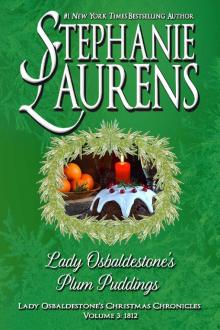 Lady Osbaldestone’s Plum Puddings: Lady Osbaldestone’s Christmas Chronicles Volume 3
Lady Osbaldestone’s Plum Puddings: Lady Osbaldestone’s Christmas Chronicles Volume 3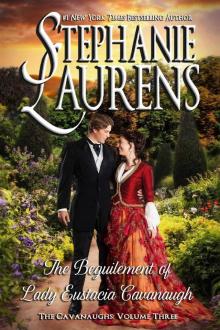 The Beguilement of Lady Eustacia Cavanagh: The Cavanaughs Volume 3
The Beguilement of Lady Eustacia Cavanagh: The Cavanaughs Volume 3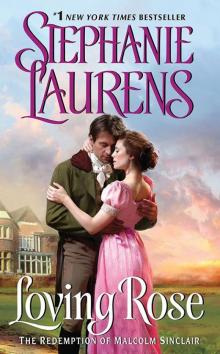 Loving Rose: The Redemption of Malcolm Sinclair (Casebook of Barnaby Adair)
Loving Rose: The Redemption of Malcolm Sinclair (Casebook of Barnaby Adair)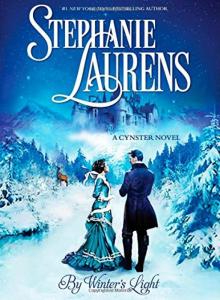 By Winter's Light
By Winter's Light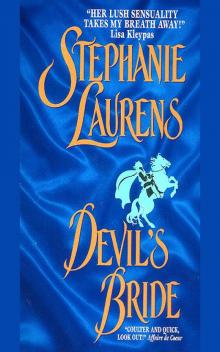 Devil's Bride
Devil's Bride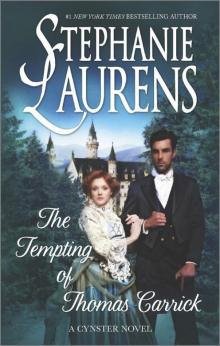 The Tempting of Thomas Carrick
The Tempting of Thomas Carrick![Cynster [22.00] A Match for Marcus Cynster Read online](http://i1.bookreadfree.com/i/03/16/cynster_[22_00]_a_match_for_marcus_cynster_preview.jpg) Cynster [22.00] A Match for Marcus Cynster
Cynster [22.00] A Match for Marcus Cynster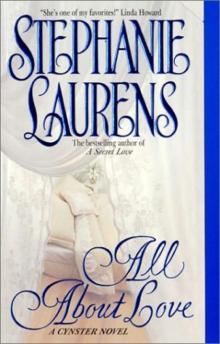 All About Love c-6
All About Love c-6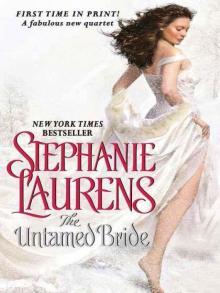 Cobra 01 The Untamed Bride
Cobra 01 The Untamed Bride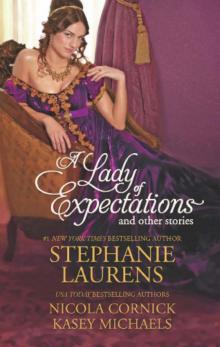 A Lady of Expectations and Other Stories
A Lady of Expectations and Other Stories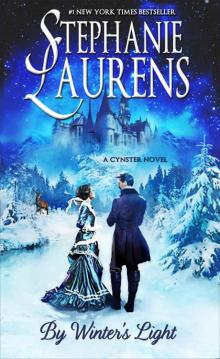 By Winter's Light_A Cynster Novel
By Winter's Light_A Cynster Novel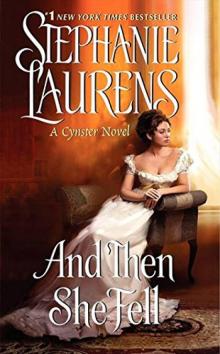 And Then She Fell
And Then She Fell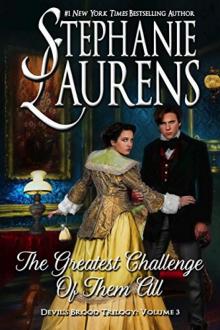 The Greatest Challenge of Them All
The Greatest Challenge of Them All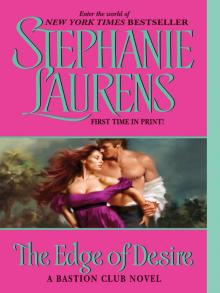 The Edge of Desire
The Edge of Desire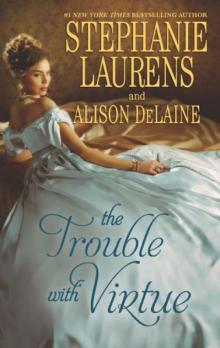 The Trouble With Virtue: A Comfortable WifeA Lady by Day
The Trouble With Virtue: A Comfortable WifeA Lady by Day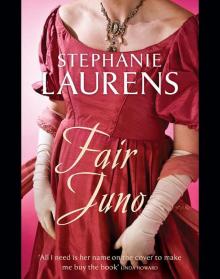 Fair Juno
Fair Juno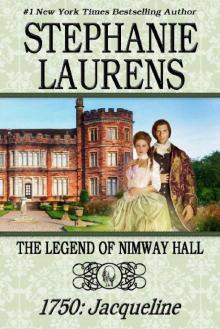 THE LEGEND OF NIMWAY HALL: 1750 - JACQUELINE
THE LEGEND OF NIMWAY HALL: 1750 - JACQUELINE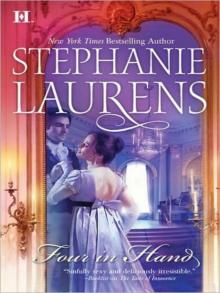 Four In Hand
Four In Hand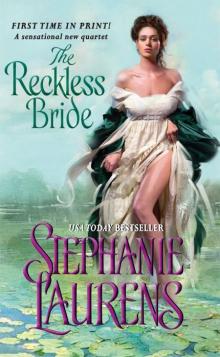 The Reckless Bride
The Reckless Bride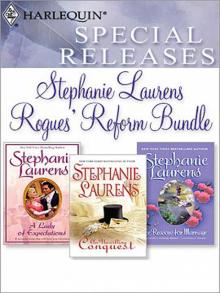 Stephanie Laurens Rogues' Reform Bundle
Stephanie Laurens Rogues' Reform Bundle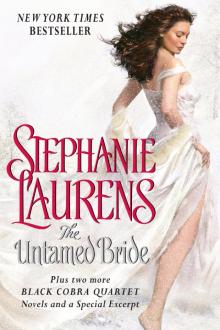 The Untamed Bride Plus Black Cobra 02-03 and Special Excerpt
The Untamed Bride Plus Black Cobra 02-03 and Special Excerpt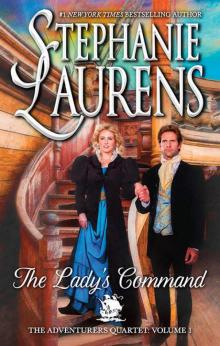 The Lady's Command (Adventurers Quartet #1)
The Lady's Command (Adventurers Quartet #1)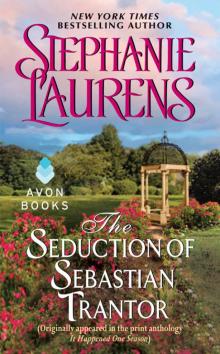 The Seduction of Sebastian Trantor
The Seduction of Sebastian Trantor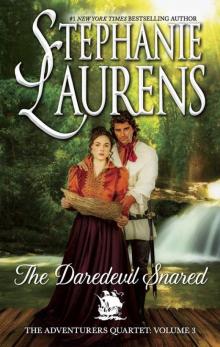 The Daredevil Snared (The Adventurers Quartet Book 3)
The Daredevil Snared (The Adventurers Quartet Book 3)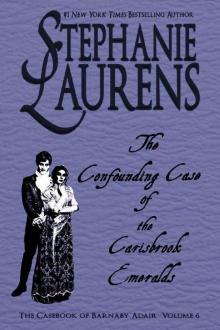 The Confounding Case Of The Carisbrook Emeralds (The Casebook of Barnaby Adair 6)
The Confounding Case Of The Carisbrook Emeralds (The Casebook of Barnaby Adair 6)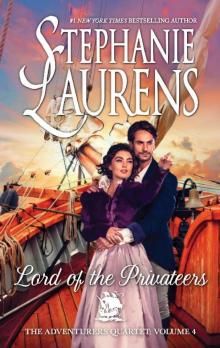 Lord of the Privateers (The Adventurers Quartet)
Lord of the Privateers (The Adventurers Quartet)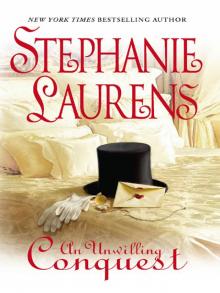 An Unwilling Conquest
An Unwilling Conquest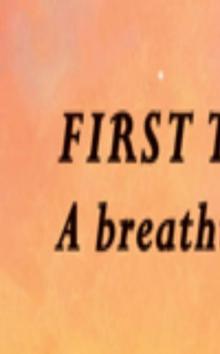 Brazen Bride
Brazen Bride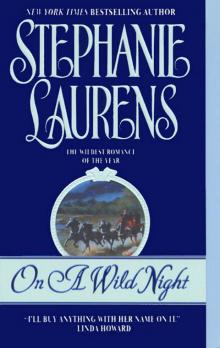 On a Wild Night
On a Wild Night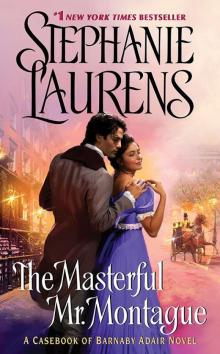 The Masterful Mr. Montague: A Casebook of Barnaby Adair Novel
The Masterful Mr. Montague: A Casebook of Barnaby Adair Novel Lord of the Privateers
Lord of the Privateers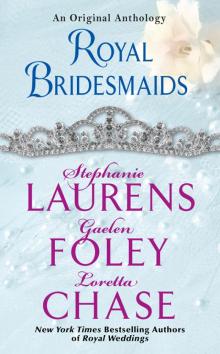 Royal Bridesmaids
Royal Bridesmaids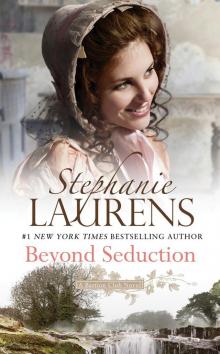 Beyond Seduction
Beyond Seduction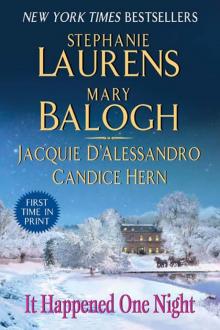 It Happened One Night
It Happened One Night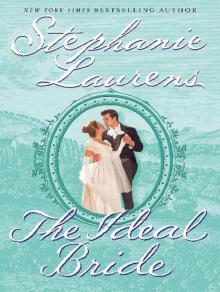 The Ideal Bride
The Ideal Bride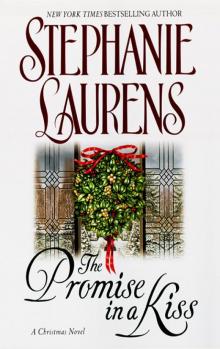 The Promise in a Kiss
The Promise in a Kiss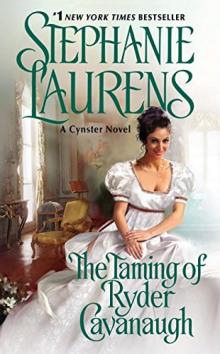 The Taming of Ryder Cavanaugh
The Taming of Ryder Cavanaugh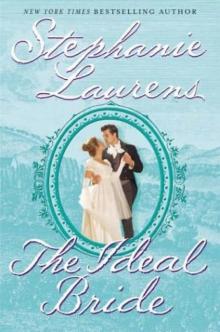 The Ideal Bride c-12
The Ideal Bride c-12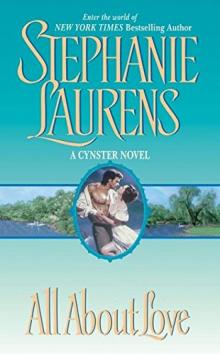 All About Love
All About Love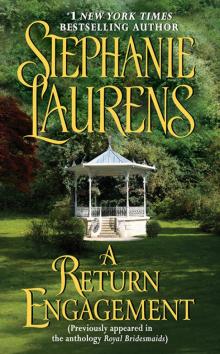 A Return Engagement
A Return Engagement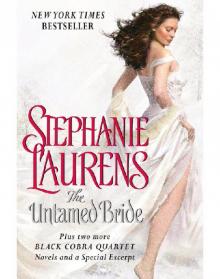 The Untamed Bride Plus Two Full Novels and Bonus Material
The Untamed Bride Plus Two Full Novels and Bonus Material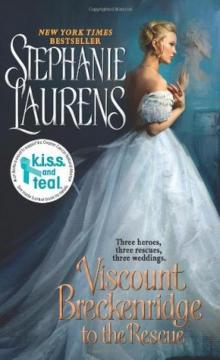 Viscount Breckenridge to the Rescue
Viscount Breckenridge to the Rescue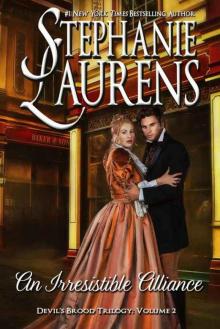 An Irresistible Alliance (Cynsters Next Generation Novels Book 5)
An Irresistible Alliance (Cynsters Next Generation Novels Book 5)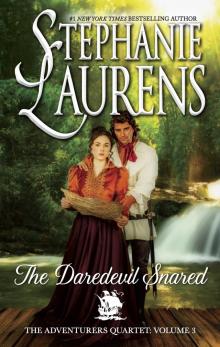 The Daredevil Snared
The Daredevil Snared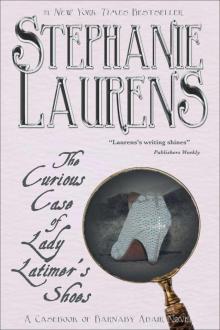 The Curious Case of Lady Latimer's Shoes: A Casebook of Barnaby Adair Novel
The Curious Case of Lady Latimer's Shoes: A Casebook of Barnaby Adair Novel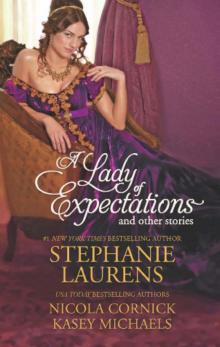 A Lady of Expectations and Other Stories: A Lady of ExpectationsThe Secrets of a CourtesanHow to Woo a Spinster
A Lady of Expectations and Other Stories: A Lady of ExpectationsThe Secrets of a CourtesanHow to Woo a Spinster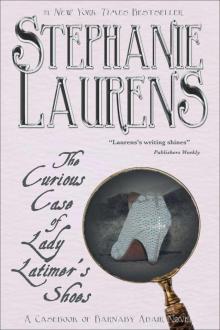 The Curious Case of Lady Latimer's Shoes: A Casebook of Barnaby Adair Novel (The Casebook of Barnaby Adair)
The Curious Case of Lady Latimer's Shoes: A Casebook of Barnaby Adair Novel (The Casebook of Barnaby Adair)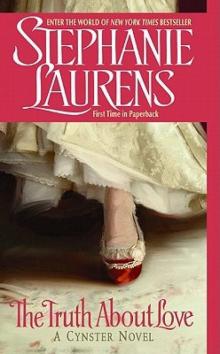 The Truth About Love
The Truth About Love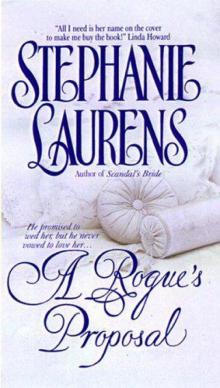 A Rogue's Proposal
A Rogue's Proposal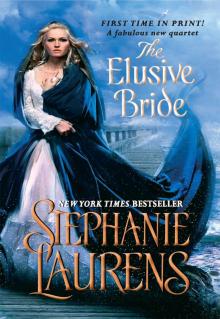 The Elusive Bride
The Elusive Bride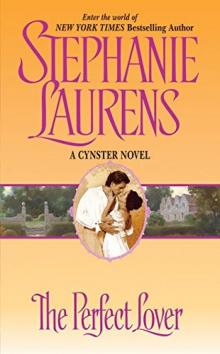 The Perfect Lover
The Perfect Lover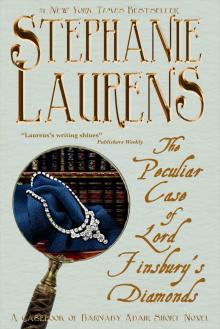 The Peculiar Case of Lord Finsbury's Diamonds: A Casebook of Barnaby Adair Short Novel
The Peculiar Case of Lord Finsbury's Diamonds: A Casebook of Barnaby Adair Short Novel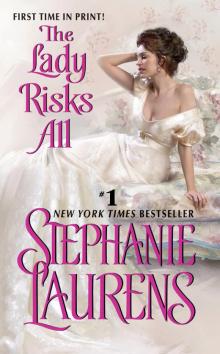 The Lady Risks All
The Lady Risks All The Murder at Mandeville Hall: The Casebook of Barnaby Adair: Volume 7
The Murder at Mandeville Hall: The Casebook of Barnaby Adair: Volume 7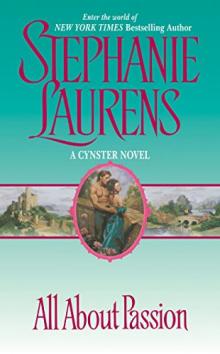 All About Passion
All About Passion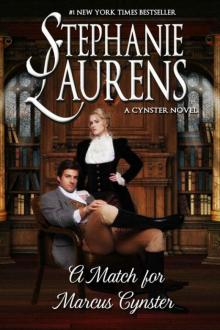 A Match for Marcus Cynster
A Match for Marcus Cynster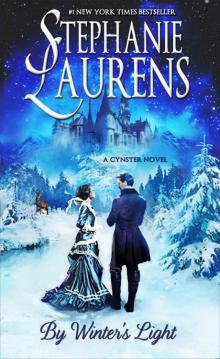 By Winter's Light: A Cynster Novel (Cynster Special Book 2)
By Winter's Light: A Cynster Novel (Cynster Special Book 2)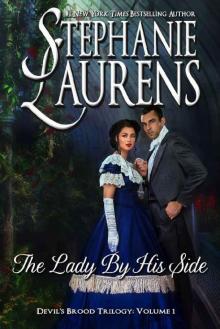 The Lady By His Side
The Lady By His Side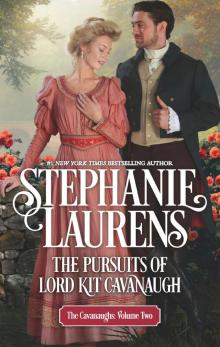 The Pursuits of Lord Kit Cavanaugh
The Pursuits of Lord Kit Cavanaugh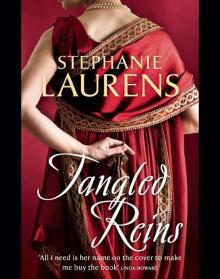 Tangled Reins
Tangled Reins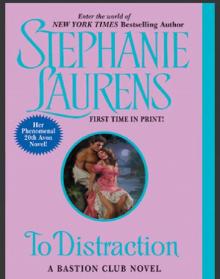 To Distraction
To Distraction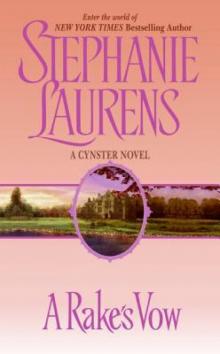 A Rake's Vow
A Rake's Vow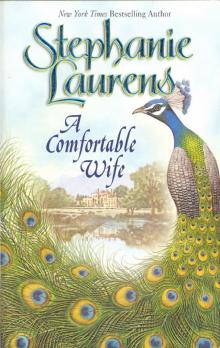 A Comfortable Wife
A Comfortable Wife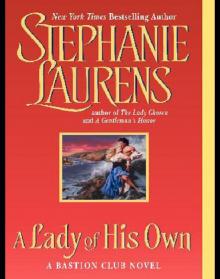 A Lady of His Own bc-3
A Lady of His Own bc-3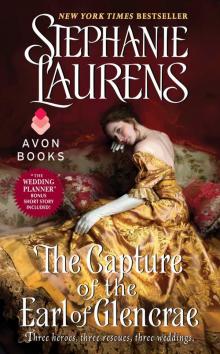 The Capture of the Earl of Glencrae
The Capture of the Earl of Glencrae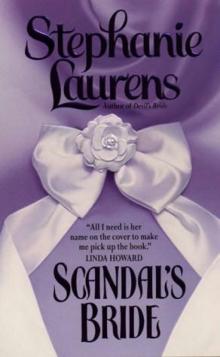 Scandals Bride c-3
Scandals Bride c-3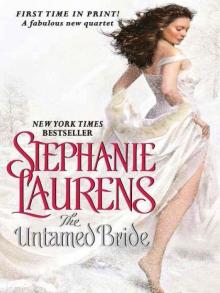 Untamed Bride
Untamed Bride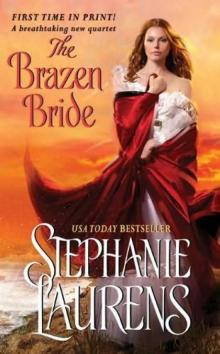 The Brazen Bride
The Brazen Bride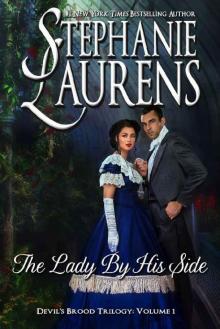 The Lady By His Side (Cynsters Next Generation Novels Book 4)
The Lady By His Side (Cynsters Next Generation Novels Book 4)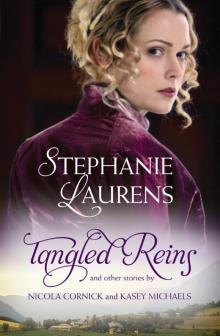 Tangled Reins and Other Stories
Tangled Reins and Other Stories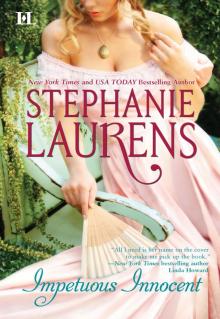 Impetuous Innocent
Impetuous Innocent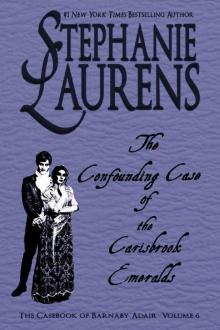 The Confounding Case Of The Carisbrook Emeralds
The Confounding Case Of The Carisbrook Emeralds Stephanie Laurens - B 6 Beyond Seduction
Stephanie Laurens - B 6 Beyond Seduction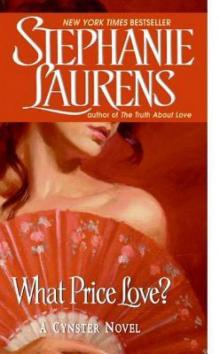 What Price Love?
What Price Love?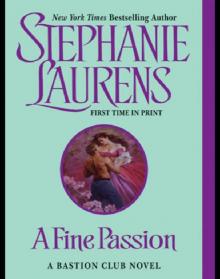 A Fine Passion
A Fine Passion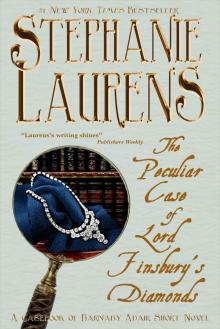 The Peculiar Case of Lord Finsbury's Diamonds: A Casebook of Barnaby Adair Short Novel (The Casebook of Barnaby Adair)
The Peculiar Case of Lord Finsbury's Diamonds: A Casebook of Barnaby Adair Short Novel (The Casebook of Barnaby Adair)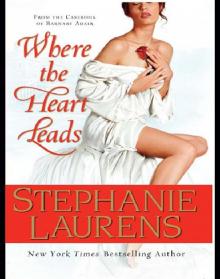 Where the Heart Leads
Where the Heart Leads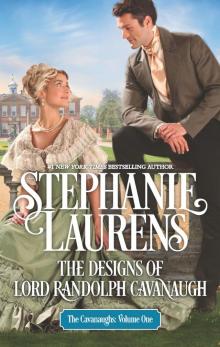 The Designs of Lord Randolph Cavanaugh
The Designs of Lord Randolph Cavanaugh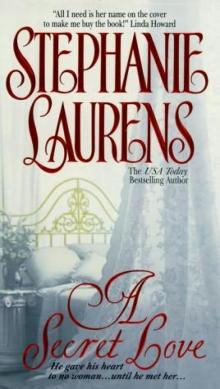 A Secret Love c-5
A Secret Love c-5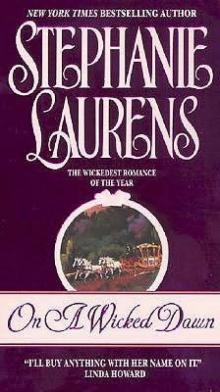 On a Wicked Dawn c-10
On a Wicked Dawn c-10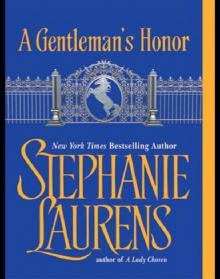 A Gentleman's Honor
A Gentleman's Honor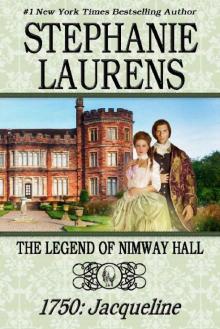 THE LEGEND OF NIMWAY HALL_1750_JACQUELINE
THE LEGEND OF NIMWAY HALL_1750_JACQUELINE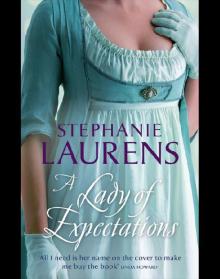 A Lady of Expectations
A Lady of Expectations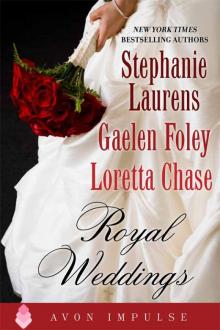 Royal Weddings: An Original Anthology
Royal Weddings: An Original Anthology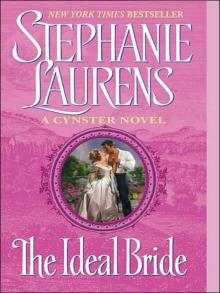 The Ideal Bride (Cynster Novels)
The Ideal Bride (Cynster Novels)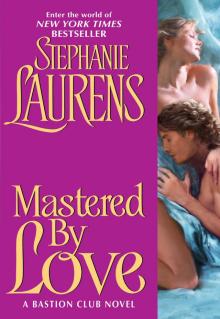 Mastered by Love
Mastered by Love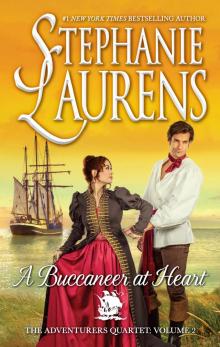 A Buccaneer at Heart
A Buccaneer at Heart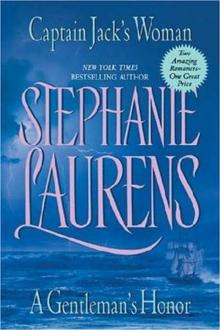 Captain Jack’s Woman / A Gentleman's Honor
Captain Jack’s Woman / A Gentleman's Honor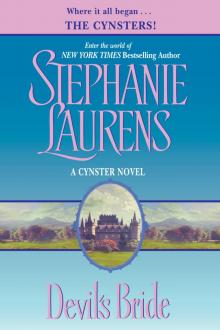 Devil's Bride with Bonus Material
Devil's Bride with Bonus Material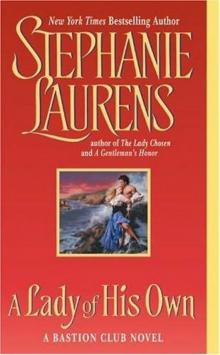 A Lady of His Own
A Lady of His Own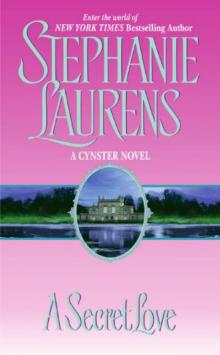 A Secret Love
A Secret Love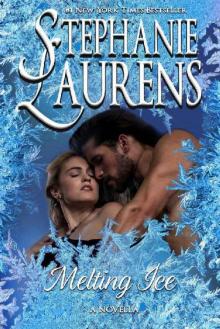 Melting Ice
Melting Ice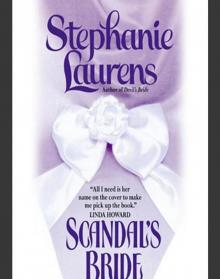 Scandal's Bride
Scandal's Bride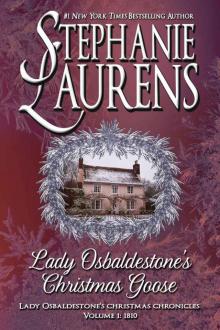 Lady Osbaldestone’s Christmas Goose
Lady Osbaldestone’s Christmas Goose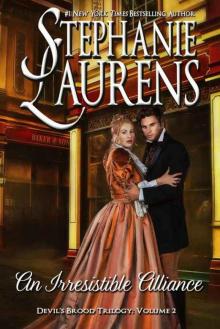 An Irresistible Alliance
An Irresistible Alliance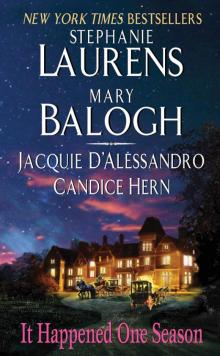 It Happened One Season
It Happened One Season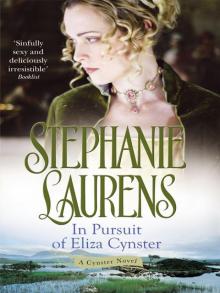 In Pursuit Of Eliza Cynster
In Pursuit Of Eliza Cynster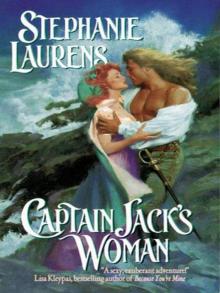 Captain Jack's Woman
Captain Jack's Woman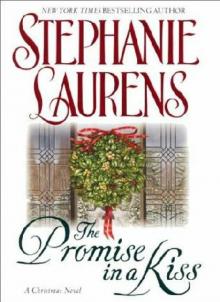 The promise in a kiss c-8
The promise in a kiss c-8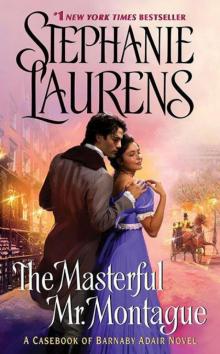 The Masterful Mr. Montague
The Masterful Mr. Montague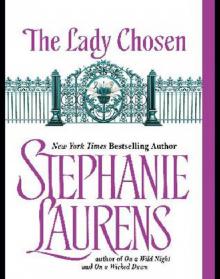 The Lady Chosen
The Lady Chosen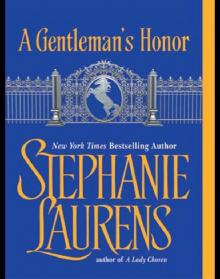 A Gentleman's Honor bc-2
A Gentleman's Honor bc-2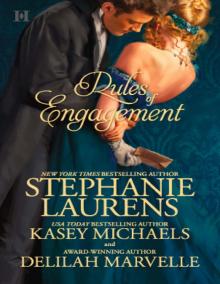 Rules of Engagement: The Reasons for MarriageThe Wedding PartyUnlaced (Lester Family)
Rules of Engagement: The Reasons for MarriageThe Wedding PartyUnlaced (Lester Family) Secrets of a Perfect Night
Secrets of a Perfect Night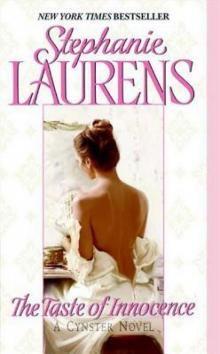 The Taste of Innocence
The Taste of Innocence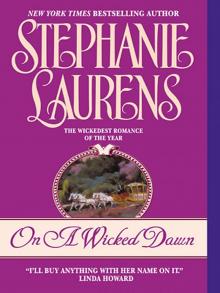 On A Wicked Dawn
On A Wicked Dawn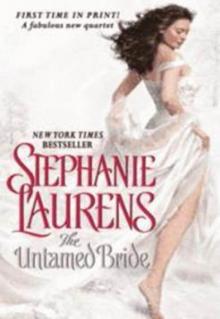 The Untamed Bride
The Untamed Bride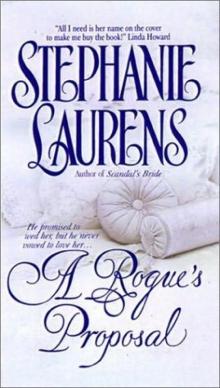 A Rogues Proposal c-4
A Rogues Proposal c-4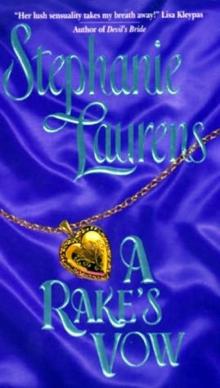 Rakes Vow c-2
Rakes Vow c-2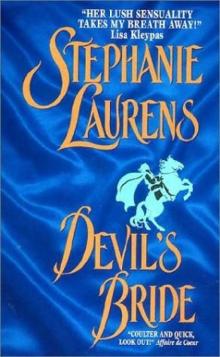 Devils Bride c-1
Devils Bride c-1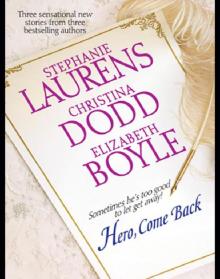 Hero, Come Back
Hero, Come Back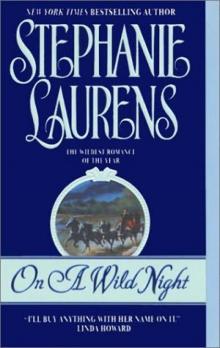 On a Wild Night c-8
On a Wild Night c-8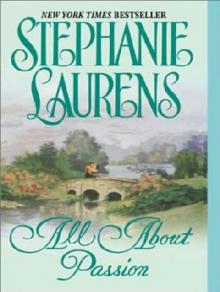 All About Passion c-7
All About Passion c-7